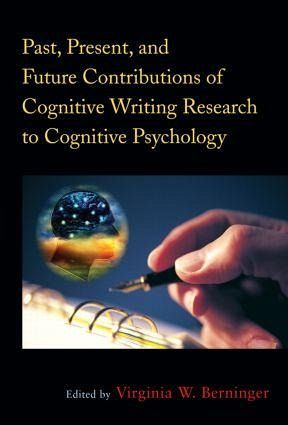Virginia Wise Berninger received her Ph.D. in Psychology from Johns Hopkins in 1981 (specialization in cognitive psychology and developmental psycholinguistics). She has been on faculties at Harvard Medical School (1981-1983), Tufts New England School of Medicine (1983-1986), and the University of Washington (1986 to present), where she is currently Professor of Educational Psychology (Learning Sciences). She was Principal Investigator of NICHD-funded research projects on writing--typical writing development and effective writing instruction for at-risk and disabled writers (1989-2008, Literacy Trek and brain imaging of typically developing writers and children with dysgraphia) and specific written language learning disabilities (1995-2006, University of Washington Interdisciplinary Learning Disabilities Center, UW LDC, family genetics, brain imaging, and treatment of writing problems in dyslexia). She directs the University Brain Education and Technology (UBET) group, which is currently investigating computer-assisted instruction in writing with support from the Binational Science Foundation in collaboration with Dr. Zvia Breznitz, Director of the Edmond J. Safra Brain Research Center, University of Haifa, Israel. She teaches courses in normal brain development and educational applications, brain disorders in learning and behavior, and writing (and reading and math) instruction with the brain in mind; she also advises Ph.D. students in Learning Sciences. Her research interests include the bidirectional cognitive linguistic translation processes involving four functional language systems (language by ear, mouth, eye, and hand), each organized by levels (subword, word, syntax, text), and three word forms (phonological, morphological, and/or orthographic) as the human brain interacts with the social and physical environment.





